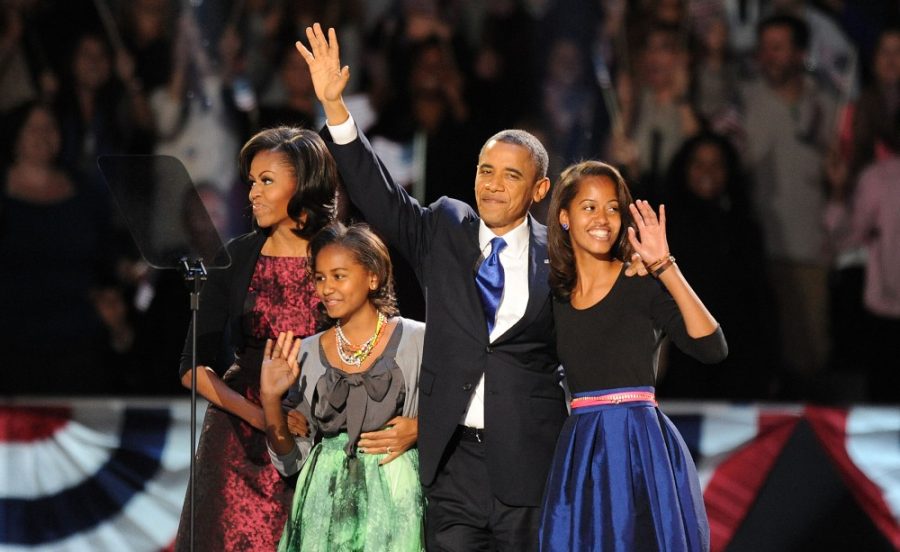WASHINGTON — President Barack Obama on Tuesday won a second term in the White House, defeating Republican challenger Mitt Romney in a hard-fought election that served as a referendum on who could better ease Americans’ economic pain and uncertainty.
Obama marched across the nation, scoring victory after victory in battleground states where the economy had mounted just enough of a comeback to convince voters to give him four more years.
He held onto the coalition that led him to victory in 2008: women, Latinos, African-Americans and young people. Romney, seeking to become the first Mormon to win the presidency, was able to win only two states Obama had won last time, Indiana and North Carolina.
The second Democrat to win a second term since World War II, Obama won 25 states, sweeping the Northeast and West Coast states and winning most of the Rust Belt battlegrounds, including Ohio, Michigan, Wisconsin and Pennsylvania. Romney won 22 states, largely dependably Republican states across the South and into Texas and the Great Plains.
The popular vote was another matter, with the possibility that Obama would win the Electoral College and the presidency while losing the popular vote — the same way George W. Bush won in 2000.
Both candidates had about 49 percent, with 72 percent of precincts reporting.
“This happened because of you,” Obama told supporters via his Twitter account soon after he was declared the winner. “Thank you.”
Romney had not yet conceded early Wednesday. On Tuesday, he told reporters on his campaign plane that “I feel like we put it all on the field. We left nothing in the locker room. We fought to the very end and I think that’s why we’ll be successful.” He said the outcome may not go his way.
“Nothing is certain in politics,” he said.
Obama took office in January 2009 with a mandate to revive an economy still struggling to recover from the Great Recession of 2007-2009, the worst downturn since the Great Depression. Six of 10 voters Tuesday said the economy was the most important issue, well ahead of health care or foreign policy. Three of four voters said the economy remained poor or not so good.
Obama touted the economy’s steady progress on his watch; Romney cited stubbornly high unemployment and mounting federal debt as he argued the recovery’s pace was too slow. In the exit polls, slightly more than half said Obama was more in touch with people like them, compared with 44 percent for Romney.
The president will face the status quo in Congress. Republicans held their majority in the House of Representatives, according to projections. All 435 voting seats were up Tuesday. Democrats retained control of the Senate. Republicans had needed a net gain of four seats.
Turnout was reported heavy, particularly in swing states as well as storm-battered New York and New Jersey. Experts still expected it to remain below 2008 levels, finding voters less engaged. About 32 million people had voted early, either in person or by mail.
The president spent Election Day in Chicago. He stopped by his campaign’s Hyde Park field office in south Chicago to greet workers and call voters. He called six Wisconsin voters, then talked to supporters at the office.
He congratulated Romney for a “spirited campaign” and said he felt good about the results. “We feel confident we’ve got the votes to win, that it’s going to depend ultimately on whether those votes turn out,” Obama said.
Later Tuesday, Obama was player-coach for a quick basketball game. Among his team members was former Chicago Bulls great Scottie Pippen. Obama’s team won by about 20 points.
Romney voted in Belmont, Mass., and then made hastily scheduled campaign swings to Ohio and Pennsylvania. Ohio was considered crucial for Romney; no Republican has been elected president without winning the Buckeye State.








